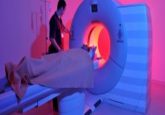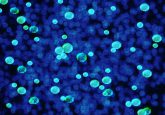Heat activation may enable targeted cancer treatment

Researchers from the University of Manchester (UK) have designed drug-filled liposomes that are activated by heat-sensitive triggers, enabling treatment to be targeted to tumors. Their work was presented this week at the National Cancer Research Institute Cancer Conference in Liverpool (UK; 1–4 November 2015).
The team has developed liposomes that carry cancer drugs directly into cancer cells. Directing liposomes to deliver drugs to tumors while sparing healthy tissue, however, has remained a challenge. In two recent studies, carried out in vitro and in mouse models, the researchers reported that including a heat-activated trigger may solve this problem.
“Temperature-sensitive liposomes have the potential to travel safely around the body while carrying your cancer drug of choice. Once they reach a ‘hotspot’ of warmed-up cancer cells, the pin is effectively pulled and the drugs are released. This allows us to more effectively transport drugs to tumors, and should reduce collateral damage to healthy cells,” commented Kostas Kostarelos, study author of the University of Manchester.
“The thermal trigger is set to 42°C, which is just a few degrees warmer than normal body temperature. Although this work has only been done in the lab so far, there are a number of ways we could potentially heat cancer cells in patients – depending on the tumor type – some of which are already in clinical use,” Kostarelos continued.
“Liposomes are small bubbles of cell membrane that act like a cellular postal service, delivering molecules to our cells. Using them to deliver cancer medicines has been a holy grail of nanomedicine. But finding ways to accurately direct the liposomes towards tumors has been a major challenge in targeted drug delivery,” chair of the National Cancer Research Institute meeting Charles Swanton (the Francis Crick Institute, UK) concluded. “These studies demonstrate for the first time how they can be built to include a temperature control, which could open up a range of new treatment avenues. This is still early work but these liposomes could be an effective way of targeting treatment towards cancer cells while leaving healthy cells unharmed.”
Source: Cancer Research UK press release


